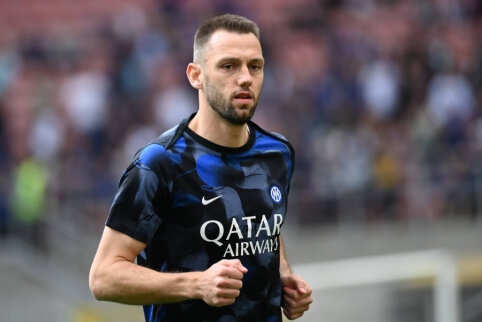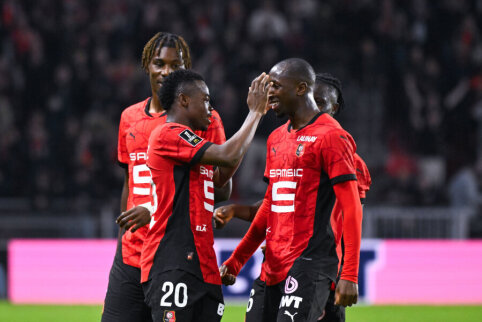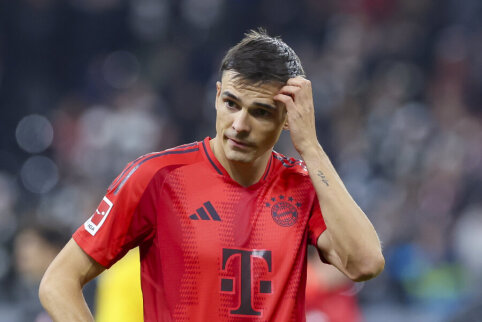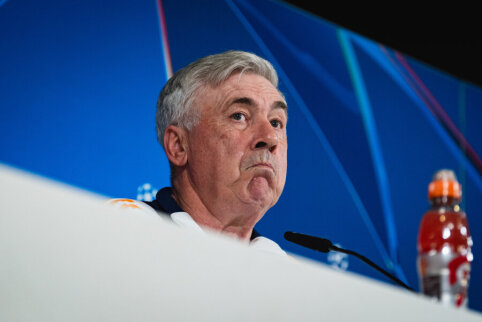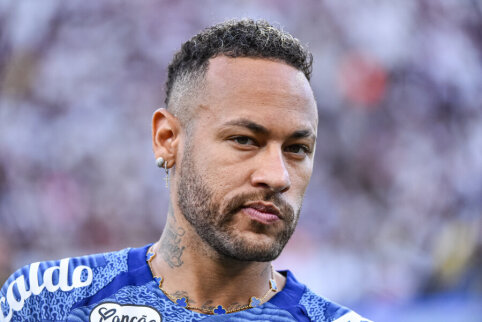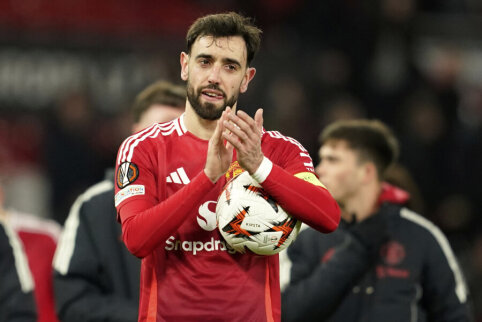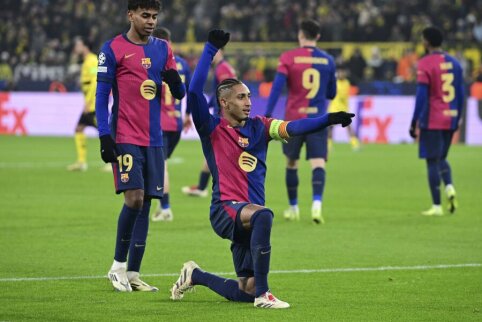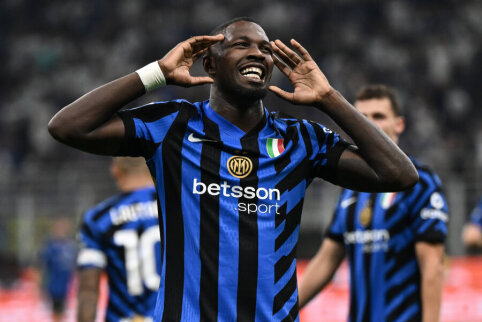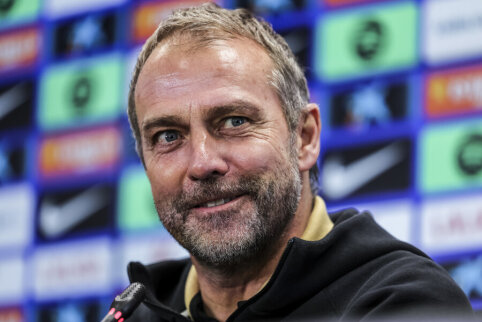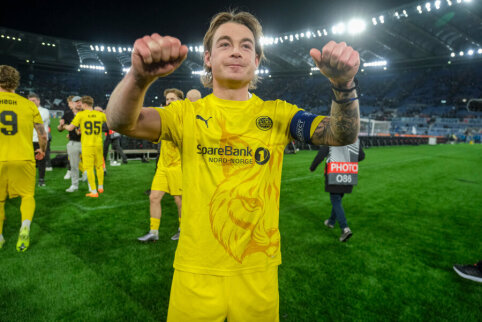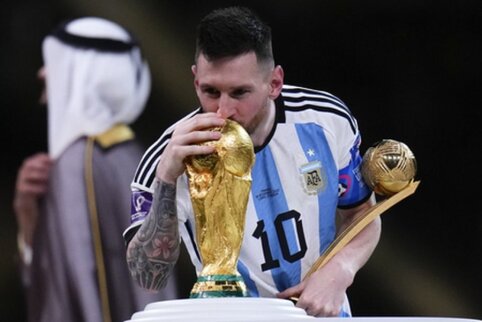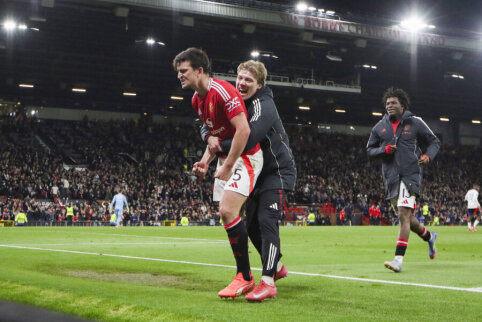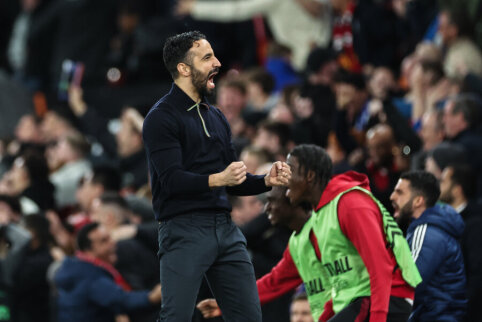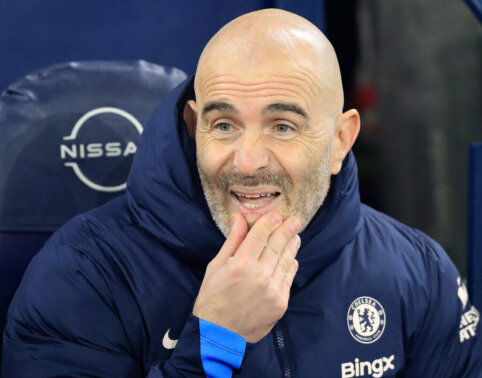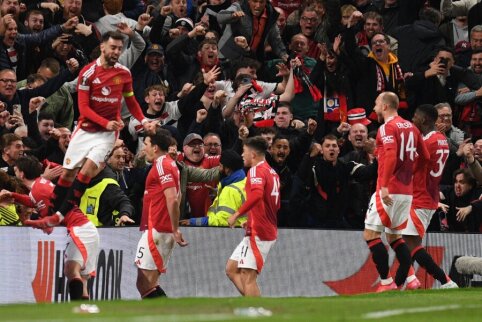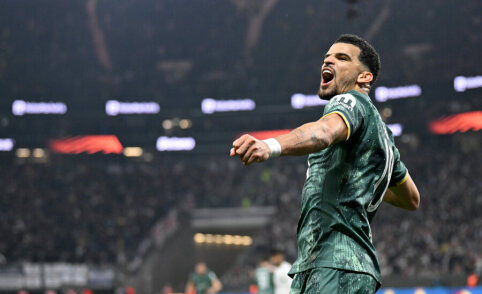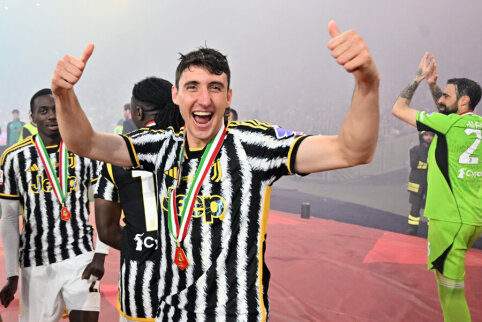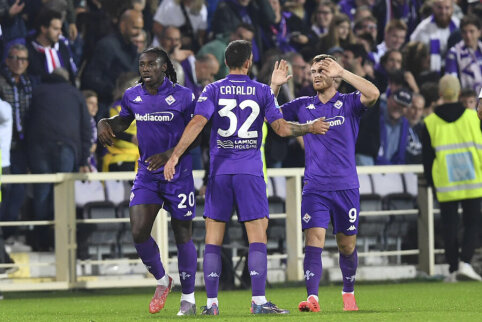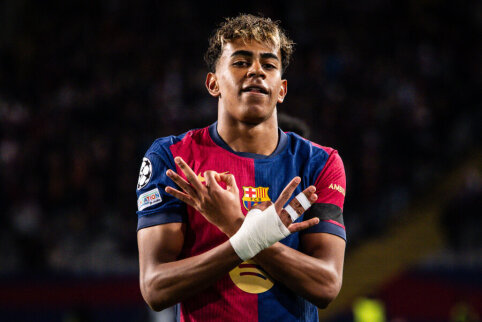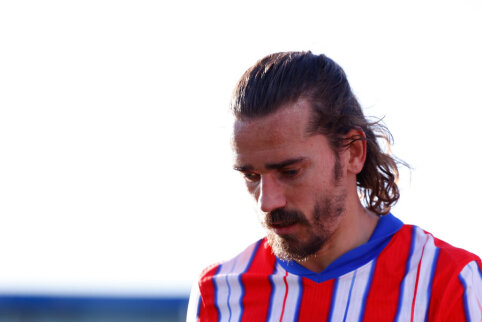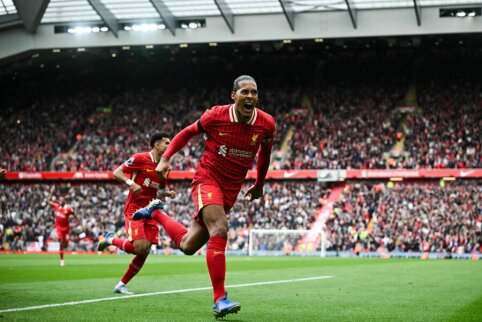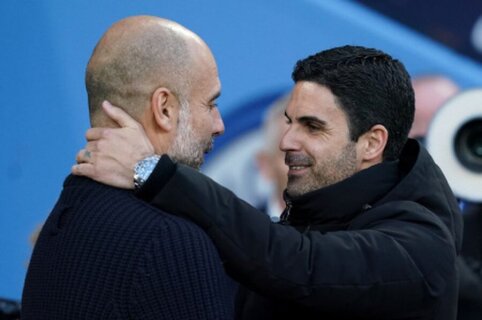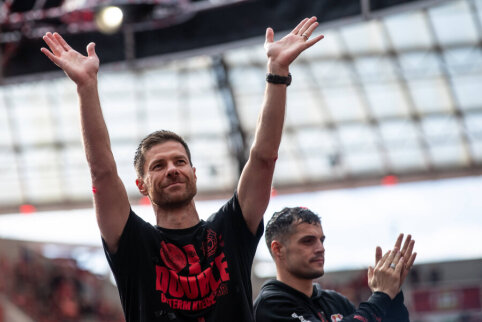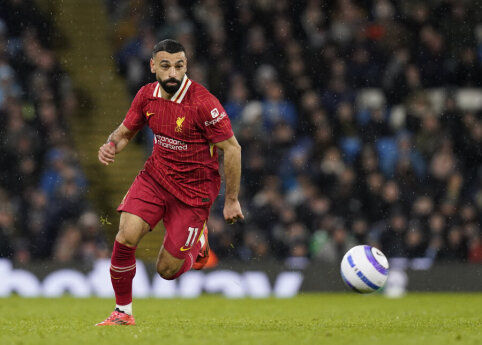 © EuroFootball.com
© EuroFootball.com
Panevezys "Ekranas" coaches continue their internship at the FC Barcelona football academy, and we present Valdas Dambrauskas' third story from Spain, from the famous club's football forge. On Monday, the coaches observed the main team's training, analyzed its details, were introduced to the subtleties of goalkeeper preparation, which was particularly relevant to "Ekranas" coach Arvydas Skrupskis.
"On Sunday at 11:00 in the morning, we, the coaching staff of FK "Ekranas," are already sitting in the "Mini Estadio" and watching another Barcelona FC professional chain, the U-19 team's match. The club's institutional relations manager and our internship coordinator Perre Gratacos mentioned in one of the conversations that some of these young players may break through to the first team's doors after two or three years. This sparked a discussion trying to guess who the lucky ones will be, everyone has their favorite.
As with the day before, in the FC "Barcelona B" games, the young colleagues won the first half 3-0. Again, everything happens in the same "Barcelona" style, the same game rhythm, movement, ball control, pressure when lost. In the second half, the young "blaugranas" add another goal and deservedly win 4-0.
It is interesting that although it is called "Barcelona" U-19, it is not composed solely of 18-year-olds. On the pitch, there are 15-year-olds playing 90 minutes, along with three 16-year-olds. Coaching England national team and giving debut to the youngest ever player for the national team Wayne Rooney at the time, Sven Goran Eriksson separated himself from his critics by saying: "If you are good enough, you are old enough." Age is not a barrier to demonstrating your football talent in FC "Barcelona."
On Monday, the official part of our internship began. Perre starts it with a presentation named after the famous Barca slogan: "More than a team" ("Mes que un club"). It is interesting why FC "Barcelona" occupies such an important place in the world of football. This club has never been as wealthy as, for example, Real Madrid, Italian clubs in the 1990s, or English clubs today.
One of the biggest paradoxes of modern football is that players change clubs just by hearing a louder sound of coins. Playing at FC "Barcelona" is a goal in itself. Where is the "Barca" magnet that attracts all the world's players and makes all the children of the world dream about this team since their early days?
Since Johan Cruyff’s arrival at Barcelona in 1973, the club has been associated with the highest quality attacking football full of romance and beauty. Shortly before that, Rinus Michels, who had "invented" total football while coaching FC Ajax, the main advocate of his ideas was Johan Cruyff. It was an ideal union, as it is unclear in which direction football would have developed if fate had not brought these two brilliant men together in Amsterdam.
Later becoming Barcelona's coach, Johan Cruyff continued to astound the world by further perfecting Barca's total football version, and the club had players like Romario, Hristo Stoichkov, and Ronald Koeman. Modern Barca is probably one of the greatest teams in the history of world football.
Arrigo Sacchi, the legendary coach of AC Milan and the Italian national team, says in his latest interview that this is because Barca has reached the pinnacle of total football perfection. If "Ajax," the 1970s Netherlands national team, or Johan Cruyff's Barca knew how to attack totally, Guardiola's team added both total defense and constant pressure on the opponent in every meter of the field. Perhaps another explanation of this paradox could be that Barca has become the standard of football play. Only exceptional, the best players in the world can play for Barca. It is impossible to resist because the best want to be with the best.
After a lecture lasting over an hour, Perre accompanies us to the football field. Here the FC Barcelona players are already warming up. It's unbelievable, we are here, next to them... Messi, Xavi, Iniesta, Puyol, Fabregas, Busquets, Pique, Alves, Abidal... Almost everyone, as Pedro misses the training due to injury. We observe every move of the players, every gesture of the coaches. The goalkeepers warm up in the penalty area, which attracts the attention of our goalkeeper coach Arvydas Skrupskis the most.
After the incredible battles with Real Madrid in the Spanish Cup, Barca lost points to Villarreal last Saturday and is now 7 points behind Real in the championship. There are still many games to play, but the tension is felt. Players complain of fatigue in the press, there are more injured in the team, and the game itself did not meet the Barca standards.
During the first team's training, we notice two groups, one that played last Saturday and the other made up of substitutes and younger players. Both groups are working on a separate program today, but perform the same Barca philosophy exercises. Later, the "subs" start the battle on the field, while the starters move on to individual work. Puyol, Fabregas, Busquets, and Xavi are doing acceleration drills right under our noses. Guardiola himself teaches Sanchez the closing and finishing techniques. Messi, sitting on the ball, carefully watches the "subs" battle. By discussing each training moment and taking notes, we spend more than an hour watching the training.
After that, we return to the auditorium. The next lecture is led by Ricardo Segarra, the head of the Barca goalkeeper's technical department, under which there are six goalkeeper coaches. In the professional part of FC Barcelona, which includes the first, second, and U-19 teams, there are seven goalkeepers. From U-8 to U-17, there are 29 goalkeepers training. In addition to the usual goalkeeper skills, the key feature in Barca is playing with feet. A Barcelona goalkeeper must practically be no different from outfield players on the field, so goalkeepers often train with players on the field during training. Individual work is done twice a week for 45 minutes with the goalkeeper coach.
During the first team's training, we notice that Valdes and Pinto, the Barcelona goalkeepers, do not have a large height advantage. According to Ricardo, in Barca, this is not an insurmountable drawback. Much more essential is the understanding of the game and decision-making. Barca's tactical philosophy directly influences the game of goalkeepers and their development. When defenders are far from their own goal and playing a high line, goalkeepers have to leave the goal to be close to central defenders. Therefore, often he is forced to handle the ball outside the penalty area. Reaction, excellent play on the goal line would never compensate for deficiencies in technique that hinder perfectly receiving or passing the ball. These shortcomings would threaten the entire Barca philosophy system. Goalkeeper coaches and Ricardo simply cannot allow that.
In the evening, we start another marathon of observing training sessions of young footballers from the Barca academy. We position ourselves so that we can see two fields at once and try not to miss anything.
On one field, the youngest U-8 players are playing matches. These kids play against their peers who are already training in the academy. The most interesting thing is that they have to play in complete silence. It is then easy to see the thinking and decision-making of young talents. It is hard to believe, but the quality of the game does not change at all. The ball quickly moves from one player to another, eventually finding its resting place in the goal.
And then it all starts over again..."
